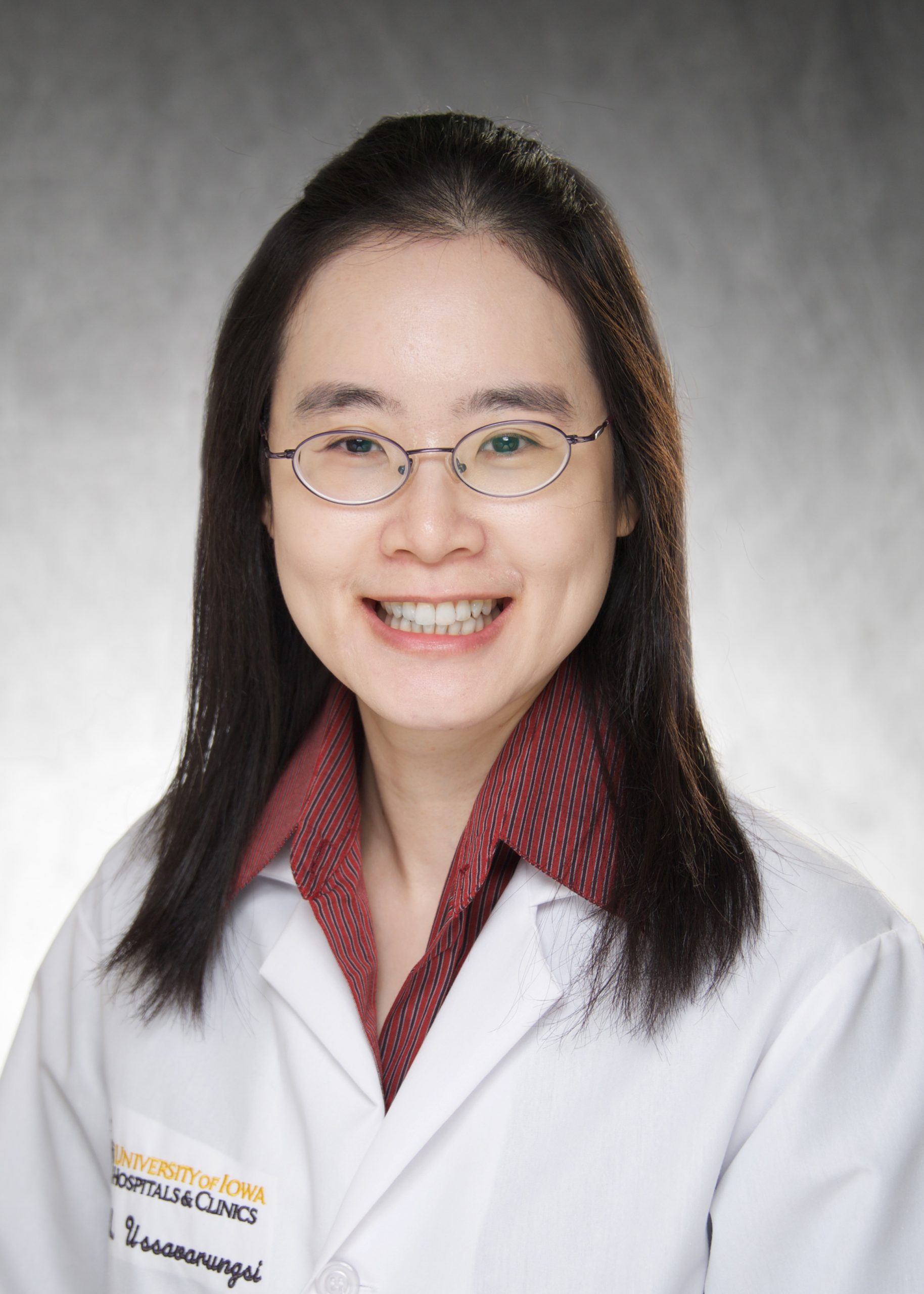Most career decisions are made for a variety of reasons, some consciously, others clarifying only in retrospect. We consider our interests, the potential for financial security, how much good our labor can produce in the world. These factors and others get weighed in different degrees, even shifting over time. For Marcus Barlow, physician assistant in the University of Iowa Health Care’s Medical Intensive Care Unit (MICU), the one factor that has never shifted is his desire to help other people.
From western Iowa to West Africa
Originally from a small town in northwest Iowa, Mr. Barlow followed in his older brother’s footsteps and enrolled at Luther College, a small private school in Decorah on the Upper Iowa River. There he majored in biology and Africana studies. But despite an interest in the cell, and with medicine as a career in the back of his head, Mr. Barlow joined the AmeriCorps after graduation. “I just really wanted a real-life experience,” he says. “I knew I wouldn’t figure out what was next in a classroom.” For a year, he lived in Denver, Colorado, serving as a street outreach counselor to teens experiencing homelessness with an organization called Urban Peak. Each day, Mr. Barlow walked the downtown Denver area, a messenger bag filled with supplies and a head full of contacts, ready to provide the teenagers he met with the resources they might need.
As fulfilling as the experience was for him, it also opened his eyes to some of the larger systemic problems underlying homelessness. “I was just putting a Band-Aid over it, [not solving] why it happens to youths in particular.” This urge to help more people than he could meet in a day led Mr. Barlow to pursue his Master of Public Health (MPH) degree, accepting an offer from the University of Iowa. Mr. Barlow worked on a number of initiatives while in school, including STD awareness with the Iowa Health Program and telehealth programs for children with special health care needs through the Center for Disability and Development (CDD). His capstone project took him to The Gambia for three months where he helped evaluate the effectiveness of a food assistance program for families with members who are HIV positive.
 A cross-section of health care
A cross-section of health care
Mr. Barlow was grateful for that experience but he still was not seeing enough impact from his efforts. “When I got back from The Gambia, it was time to put hard science back into my career. I noticed that people listened to you (because of the MPH), but they didn’t do anything.” After a year working with the CDD, he moved back to Denver and enrolled in PA school. The intensive, two-year program had Mr. Barlow in a classroom for a year and then another year of clinical rotations, mostly in rural Colorado and Kansas. “I moved around a lot,” Mr. Barlow says. “There were only about two months out of that year I was actually living in my apartment.”
Each town Mr. Barlow would enter gave him a new opportunity to observe the condition of the health care system, particularly in smaller towns with little access to higher level care. “Dove Creek, Colorado, has about 700 people and three providers. They’re trying to see as many patients as they can, but they’re totally overwhelmed.” He describes the eye-opening experience of joining the care team on home visits at the end of a full day to see patients with limited mobility who could not make it to the clinic. “You really understood the whole patient, what their home life is like.” He gained a better understanding for some of the obstacles that might make implementing recommendations a greater challenge for people.
“This is it”
Because he knew he wanted to move back to Iowa, Mr. Barlow organized a rotation in the often-full, 26-bed MICU here at UIHC. And although he was grateful for the experience and enjoyed working with everyone here, he did not think he would apply to the University of Iowa or to the MICU after graduation. “I didn’t think Allison [Wynes, ARNP] would hire me, she would want me to have more experience.” But Mr. Barlow’s preceptor encouraged him to apply. “He made a great impression on the staff, performing at the level of fourth-year medical students and interns,” Ms. Wynes says. “He took the stress of the unit in stride.”
In the three months since he was hired and began, Mr. Barlow continues to weather the demands of the role. The work appeals to him. Patients present with problems “that I can take care of right now. It may take days, but I can put on my detective hat and figure out what information we need and what’s going on with this patient.” He also appreciates the team-based approach of the unit. “Every morning, we round as a team, the staff physician, a fellow, one or two residents, a pharmacist.” Often he is in touch with care coordinators, social workers, physical therapists as well. “We all work together.”
Mr. Barlow also enjoys his time away from the MICU, too. He enjoys running, cooking, and skiing. Next month, he is heading back to Colorado, taking his partner to the slopes for the first time. But soon after, Mr. Barlow will be back to work. His long-term plans are centered right on the MICU. “This is it. It makes me happy. There’s days, most days, that you walk out of here and think, we did our best. We acted quickly to improve this patient’s health.”

